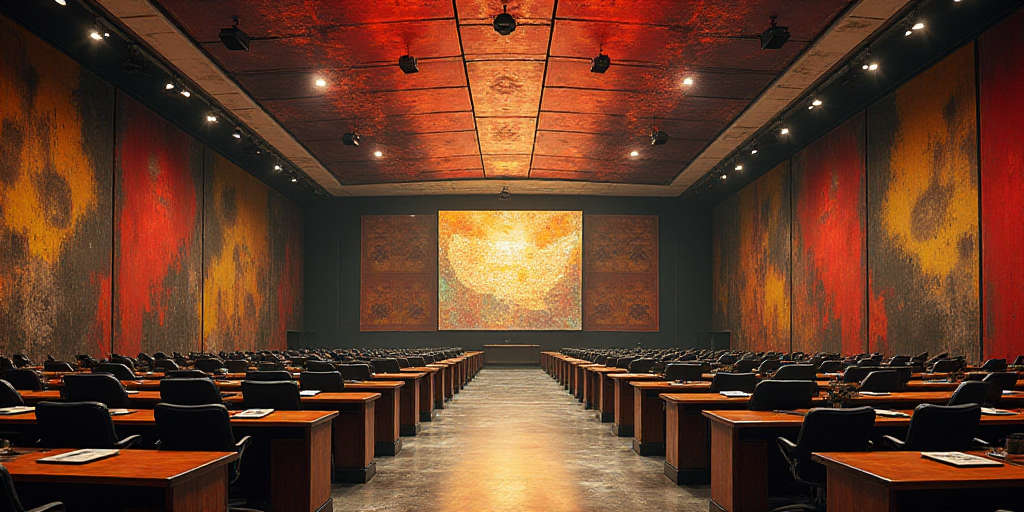Overview of Labor Proposals in September
In September, over 40 labor-related initiatives were presented in the Mexican Congress, primarily in the Chamber of Deputies. The central themes included salary equality, vacation donation, reducing the workweek, and transparency in job postings and recruitment processes.
With these proposals, the current legislature has accumulated approximately 250 labor law modifications or constitutional article 123 amendments. This wave of projects includes topics that were rarely explored in previous legislatures.
Notable Labor Initiatives in September
Vacation Donation
The proposed project aims to incorporate the concept of vacation donation into the Federal Labor Law (FLL), similar to France’s model. This would allow individuals to transfer days from their vacation period to colleagues needing time for caring for sick or disabled family members or extending maternity/paternity leave.
The diputada Carina Piceno Navarro (Morena)’s proposal limits donation to the excess of 12 vacation days and requires employee requests for sharing. Companies would manage the tracking of shared days.
Reduced Workweek
September saw three proposals to reduce the workweek, bringing the total to 13 such initiatives. Two came from Baja California’s Congress, one targeting constitutional change and the other the FLL.
Baja California’s Congress proposal is the first to set a maximum 40-hour workweek in both constitutional and FLL, allowing flexible distribution as agreed upon by employers and employees. It also includes a 25% Saturday premium on regular salary.
The other proposal, by diputada Lilia Aguilar Gil (PT), aims for a daily work limit of 7 hours in the constitution.
Transparency in Recruitment
These labor topics have gained prominence in the legislative agenda. September’s proposals focused on making recruitment processes more transparent, including job offers.
Diputado Antonio Lorenzo Castro Villarreal (Morena) proposed making it mandatory for employers to clearly and accessibly display wages or salary ranges in job postings, specifying whether the salary is gross or net. Non-compliance could result in a penalty of up to 565,700 pesos.
Diputado Armando Corona Arvizu (Morena)’s proposal tackles the “ghosting” issue in recruitment. It requires companies to notify candidates about their application status within 45 days post-interview and inform when a job offer is filled.
Salary Equality
A new General Law on Salary Equality between Women and Men was proposed in September, though it’s new legislation with a strong labor component. It imposes new obligations on both private and public employers.
These obligations include salary audits, objective criteria for setting remuneration, avoiding requesting applicants’ salary history, and providing clear access to workers’ equal pay rights. The proposal is led by diputada Julia Arcelia Olguín Serna (Morena).
Athletes’ Salaries
Movimiento Ciudadano in both chambers seeks to resume the sports equality salary reform. In the previous legislature, the Senate approved a bill obliging sports clubs to provide equal base salaries for athletes, regardless of gender. The reform remains unratified in the bicameral.
The new proposals aim to establish base salary equality, allowing supplementary payments based on event category, team, or professional experience. The Secretariat of Labor and Social Security (STPS) would set base salaries, similar to the previous dictamen.
What to Expect in Labor Reforms
Although the government hasn’t sent the workweek reduction reform proposal, it may still be discussed before year-end. The goal is to reach 40 hours by 2030; if not addressed before 2025, implementation time will be even shorter.
However, a 40-hour workweek isn’t the only legal change expected. Other reforms are gaining traction, such as bereavement leave, already approved in Senate commissions awaiting plenary voting.
The recent labor harassment dictamen approved in the Senate’s Work and Prevision Social Commission, amending the FLL, recognizes various workplace violence types, including cyberbullying. It grants victims the right to integral damage repair. This topic advances as Mexico committed to harmonizing its legislation with OIT Convention 190.
Other topics with potential legislative progress include remunerated leave for preventive medical exams, awaiting Cameron of Deputies plenary voting. Lastly, the FLL reform on minimum wage and tip protection in service establishments awaits Senator analysis, unanimously approved in the Chamber of Deputies.
Key Questions and Answers
- Q: What labor proposals were presented in September? A: Over 40 initiatives, focusing on vacation donation, reducing the workweek, transparency in job postings, salary equality, and athletes’ salaries.
- Q: How many labor law modification proposals are there in the current legislature? A: Approximately 250 proposals.
- Q: What is the goal for workweek hours by 2030? A: To reach a maximum of 40 hours.
- Q: What other labor reforms are expected to advance? A: Bereavement leave, labor harassment recognition, remunerated preventive medical exams, and tip protection in service establishments.






